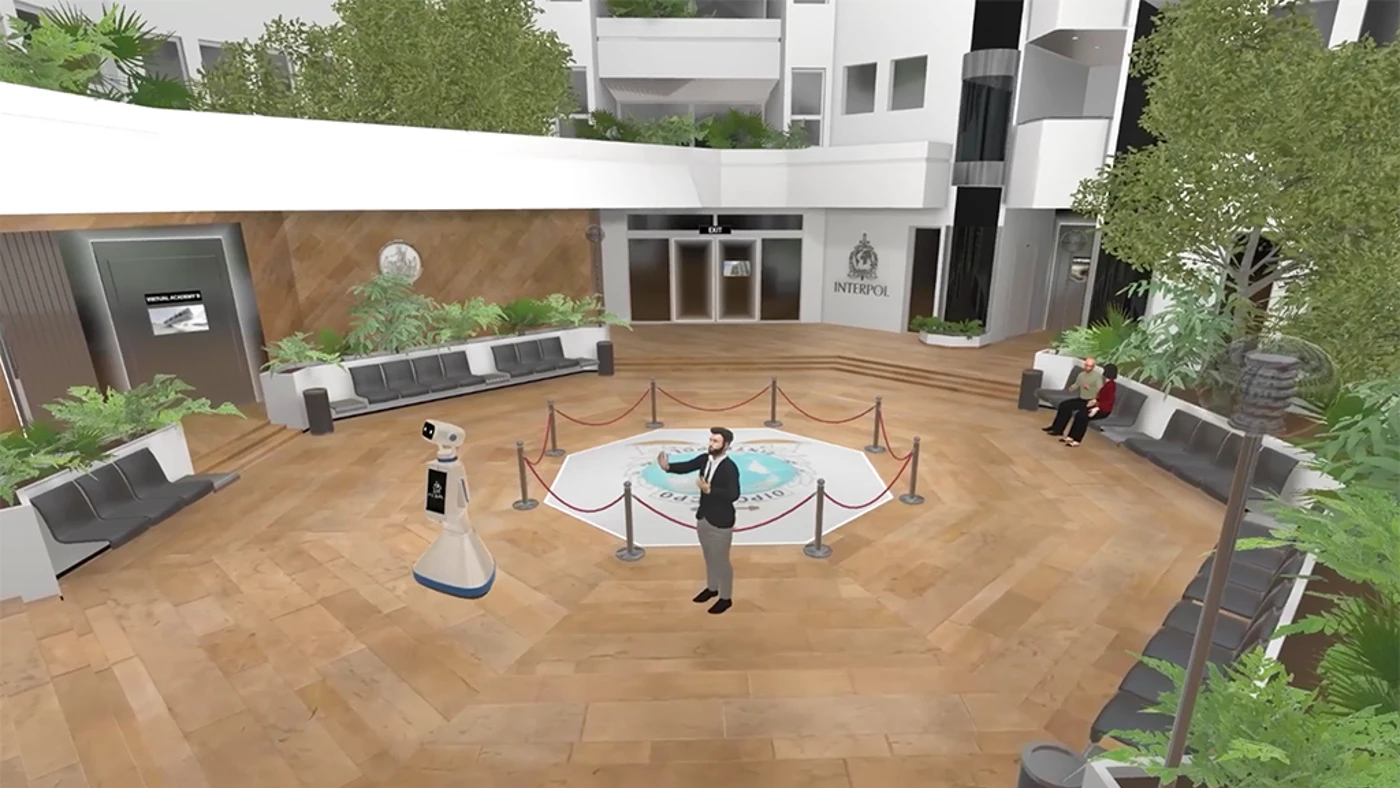INTERPOL has entered the metaverse with a global police metaverse, hosted on the INTERPOL Secure Cloud to ensure neutrality.
The now fully operational platform allows registered users to tour a virtual replica of the INTERPOL General Secretariat, regardless of location.
Users will be able to interact with other officers in 3D avatars and take immersive training courses in forensic investigation and other policing tasks.
At the 90th INTERPOL General Assembly in New Delhi, India, the organisers demonstrated the operational capabilities of the global police metaverse platform by allowing General Assembly delegates to digitally enter the Lyon building through avatars, using VR headsets.
“For many, the Metaverse seems to herald an abstract future, but the issues it raises are those that have always motivated INTERPOL – supporting our member countries to fight crime and making the world, virtual or not, safer for those who inhabit it,” said INTERPOL Secretary General Jürgen Stock.
“We may be entering a new world, but our commitment remains the same,” the Secretary General added.
According to Oberoi, the virtual reality experience will help global police enforcement agents to understand the metaverse better.
The organisation also announced the construction of an Expert Group on the Metaverse to address the concerns of law enforcement to facilitate the creation of a secure metaverse.
As the newly released INTERPOL Global Crime Trend report shows, crime has increasingly moved online as the pace of digitalization has increased. If the boundaries of our physical world move ever further into a digital – and seemingly borderless – realm, the panel discussion asked, ‘how can law enforcement continue to protect communities and guarantee the rule of law?’
Criminals are already starting to exploit the Metaverse. The World Economic Forum, which has partnered with INTERPOL, Meta, Microsoft and others in an initiative to define and govern the Metaverse, has warned that social engineering scams, violent extremism and misinformation could be particular challenges.
Some of the offences that the organisation wants to prevent include “crimes against children, data theft, money laundering, financial fraud, counterfeiting, ransomware, phishing, and sexual assault and harassment,”
“By identifying these risks from the outset, we can work with stakeholders to shape the necessary governance frameworks and cut off future criminal markets before they are fully formed,” Oberoi said.
“Only by having these conversations now can we build an effective response.”
In a live demonstration, experts from the INTERPOL Capacity Building and Training Directorate delivered a training course on travel document verification and passenger screening using INTERPOL capabilities in a Metaverse classroom.
Students were then teleported to an airport where they were able to apply their newly-acquired skills at a virtual border point.
“The Metaverse has the potential to transform every aspect of our daily lives with enormous implications for law enforcement,” said Madan Oberoi, INTERPOL’s Executive Director of Technology and Innovation.
“But in order for police to understand the Metaverse, we need to experience it.”



